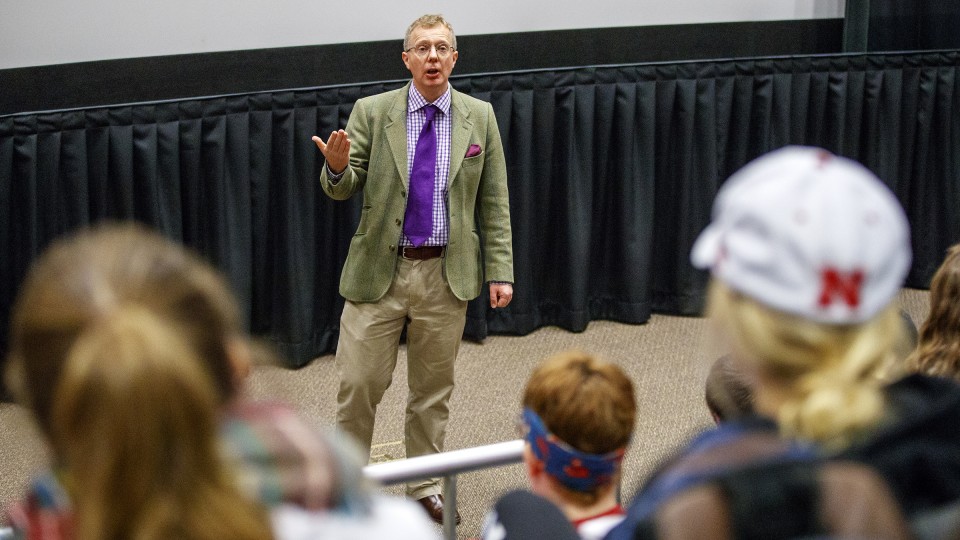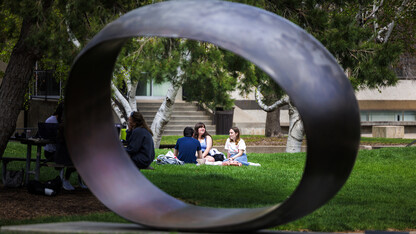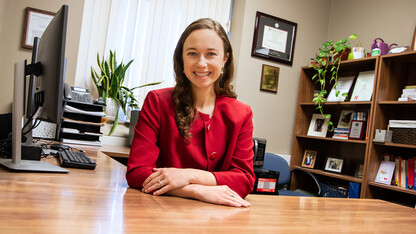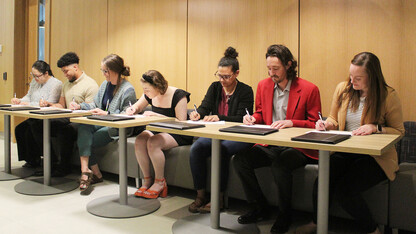· 3 min read
British historian visits Nebraska

In 2015, a Fulbright award allowed University of Nebraska-Lincoln historian Carole Levin to travel to the United Kingdom and ensconce herself in the University of York. That Fulbright is still paying dividends to students with a visit of well-known Tudor historian John Cooper.
Cooper, a senior York lecturer, is spending the week giving guest lectures in history and medieval and Renaissance studies classes, and meeting with undergraduate and graduate students. He will also present a public talk on his latest project, a digital recreation of St. Stephen’s Chapel in the Palace of Westminster, at 5:15 p.m. Nov. 9 in the Dudley Bailey Library of Andrews Hall. He will give a multimedia presentation of his examination of the chapel’s position in history as the first permanent meeting place of the British House of Commons.
The visit is largely due to Levin, Willa Cather Professor of History and director of the medieval and Renaissance studies program, forging partnerships with York’s faculty in medieval and Renaissance studies during her Fulbright, as well as the College of Arts and Sciences’ new ENHANCE funding program. ENHANCE was developed by the dean’s office to support research, scholarship and creative activity of faculty members from disciplines with less substantial start-up funds and limited extramural funding opportunities.
Since arriving Nov. 6, Cooper has been relishing the chance to meet with American students who have an interest in early modern English history. He’d previously Skyped with students from Levin’s history class on Tudor- and Stuart-period England, who read his book on Sir Francis Walsingham.
Student Angela Bolen is preparing her doctoral dissertation, and Cooper was happy to lend his expertise.
“Dr. Cooper brought, in a brief amount of time, a wealth of perspective and knowledge,” Bolen said. “He asked a few questions that I hadn’t really thought much about and we talked a lot about the differences between American schools of historical thought and the British system. That was very helpful.”
Cooper said he was surprised to learn of the number of students in the program at Nebraska.
“Since there’s no particular connection between early modern England and the state of Nebraska, I’m guessing it’s because of Dr. Levin and because of the research resources that are here,” he said. “The investment that the University of Nebraska has made in electronic resources actually makes that possible.”







